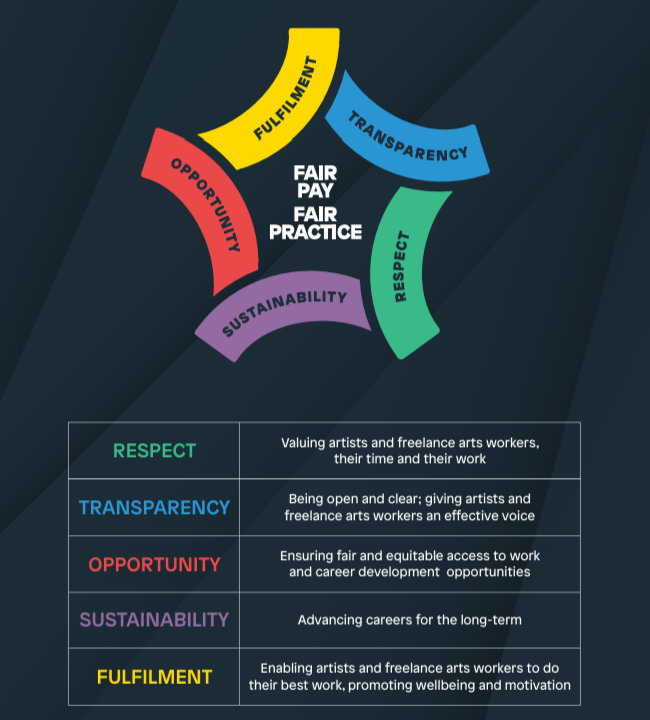Following the successful implementation of the basic income support scheme for approximately 2000 artists and creative workers in Ireland with a weekly payment of €325, the country's Arts Council is now taking it a step further.
Early October, the “Fair Pay, Fair Practice Policy Toolkit” was published to support Arts Organisations in transforming their remuneration and working conditions policies for artists and freelancers in the sector.
Acknowledging the systemic challenges that artists face, such as low pay, unstable incomes and precarious working conditions, the toolkit's main objective is to help organisations proactively develop and implement their own specialised policies.
The initiative emerges from a commitment to support arts organisations to develop and publish their own policies on artists' pay. Organisations are invited to consider the set of best-practice principles outlined in the Arts Council's Paying the Artist policy. This policy argues that remuneration is only fair when it adequately reflects the time, expertise, contribution, and value created by an artist's work.
Research undertaken to develop the toolkit highlights ongoing issues, including unpaid meeting times, the high costs of making work, and poor social protection coverage. A survey of artists undertaken during the development of the toolkit found that 95% believe written policies can improve pay. However, only a quarter of funded organisations currently publish their rates publicly.
The toolkit suggests actions that arts organisations can take to address these issues, such as paying people promptly or offering part of their fee upfront. Many of these actions were already committed to by arts organisations in their existing policies. By collecting and listing them, the toolkit seeks to share and promote examples of best practice across the arts sector.
The “Fair Pay, Fair Practice Policy Toolkit” helps organisations ensure equitable treatment and fair remuneration with a step-by-step guide on how to develop a policy, based on 5 principles.
The toolkit supports this aim, and is offered as a developmental tool for those organisations to create new or improve existing policies.
Furthermore, the Arts Council emphasises the importance of organisations striving for best practices rather than minimum standards and maintaining high levels of transparency and openness in all contractual transactions.
The development of the toolkit involved an extensive consultation process to ensure its accuracy and relevance to the sector. This involved close collaboration with 81 arts organisations, as well as a special survey of artists, which received over 480 responses, capturing the direct experiences and opinions of freelancers in the arts.
The research phase included a thorough review of national and international studies confirmed the prevalence of structural problems, such as financial instability and a lack of access to standard benefits, including sick and parental leave. It also highlighted excessive expectations of unpaid work, including time spent on meetings, planning and networking.
To help organisations address these issues, the tool provides practical resources such as worksheets, templates, and reflection prompts. These resources ensure that all collaborations with artists are covered by a clear contract, with remuneration reflecting the full scope of work and expenses being clearly separated from fees (including per diems).
Image: ‘Terra’ by Alessandra Azeviche. Photo: Kristian Mantalvanos, courtesy of the Arts Council









